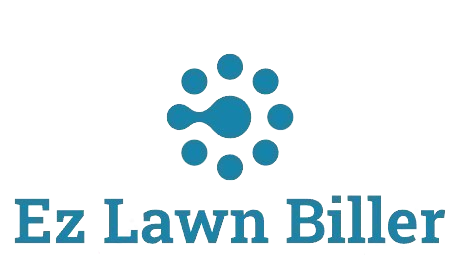Manage Schedules: Tips for Lawn Professionals
In the dynamic world of lawn care, effective schedule management is crucial for success. Lawn professionals must balance client demands, weather conditions, and service efficiency. This comprehensive guide provides actionable tips and best practices for managing schedules effectively in your lawn care business.
Manage Schedules Tips for Lawn Professionals
As a lawn care professional, effective schedule management is vital to your success and client satisfaction. The industry is fast-paced, and juggling various clients, services, and unpredictable weather can be challenging. To thrive, you need to implement strategies that streamline your scheduling process, allowing you to maximize productivity and enhance client relationships. This article will offer detailed insights into effective schedule management, including practical tips, tools, and best practices designed specifically for lawn care professionals.
One of the first steps to effective schedule management is understanding the demand of your services. Lawn care professionals often face fluctuations in client requests based on seasonal changes and weather conditions. For instance, spring and summer months typically see a surge in demand for mowing, fertilization, and aeration services, while fall may shift the focus to leaf cleanup and winterization. By anticipating these changes, professionals can adjust their schedules and workforce accordingly. This foresight not only enhances service delivery but also improves client satisfaction.
Additionally, employing a robust scheduling tool can significantly enhance the management of your services. For instance, software like Lawn Biller Software offers automated scheduling features that allow you to create, modify, and track appointments efficiently. This not only saves time but also minimizes scheduling conflicts and ensures that clients receive timely services.
Utilizing Technology for Scheduling
In today’s digital age, leveraging technology is essential for efficient schedule management. Mobile applications and software solutions can help lawn care professionals streamline their operations. For instance, scheduling tools can automate appointment reminders, helping reduce missed appointments and no-shows. By integrating a software solution like EZ Lawn Biller, you can send automatic notifications to clients about upcoming services or changes in the schedule.
Furthermore, GPS tracking can optimize routing for lawn care professionals, ensuring that travel time between jobs is minimized. By using routing software, you can determine the most efficient paths between jobs, ultimately saving time and fuel costs. This way, you can fit more appointments into your day, boosting productivity and profitability.
Prioritizing Flexibility and Communication
Flexibility is another important aspect of effective schedule management. The lawn care industry is subject to unpredictable weather changes, which may require last-minute adjustments to your schedule. Establishing a buffer in your schedule for these unforeseen events can help you maintain service quality. For example, if rain is forecasted, having a buffer day to reschedule missed appointments can prevent service delays and ensure client satisfaction.
Clear communication with clients about scheduling changes is also vital. Regularly updating clients about potential rescheduling due to weather or other factors helps build trust and reliability in your services. If clients are informed early about changes, they are more likely to be accommodating and understanding about rescheduling.
Implementing Effective Time Management Strategies
Time management skills are essential for lawn professionals to ensure that each job is completed efficiently. One strategy is to block specific times for different services. For instance, you could allocate mornings for mowing and afternoons for fertilization or aeration. This not only helps you organize your day but also allows your team to specialize in certain tasks, improving overall service quality.
Furthermore, consider batch scheduling, which involves grouping similar tasks or clients together. If you have multiple clients in the same area requiring similar services, scheduling them consecutively can optimize your travel time and resources. This approach minimizes downtime and allows you to maximize your work hours while reducing costs associated with travel.
Evaluating Performance and Making Adjustments
It’s essential to regularly evaluate your scheduling performance to identify areas for improvement. This could involve assessing customer feedback regarding service delivery timeliness or analyzing your team’s productivity rates. Using reports generated by software like EZ Lawn Biller can provide valuable insights into your operations, highlighting patterns in scheduling efficiency and client demands.
By assessing your performance, you can identify which services are in high demand and adjust staffing levels and scheduling practices accordingly. Additionally, it allows you to pinpoint any recurring issues, such as common weather-related cancellations, enabling you to proactively adapt your scheduling strategy.
Best Practices for Client Management
Maintaining strong relationships with clients is key to a successful lawn care business. Implementing a client management system within your scheduling software can help you keep detailed records of client preferences, service history, and special requests. This information can be invaluable in providing personalized services that meet each client’s unique needs.
Additionally, consider sending follow-up messages after each service to gather feedback. This not only demonstrates your commitment to customer satisfaction but also gives you critical insights into your scheduling effectiveness. Clients appreciate businesses that take their feedback seriously, which can lead to increased loyalty and repeat business.
Building a Reliable Team
A reliable team is fundamental to managing schedules effectively. Hiring professionals who are not only skilled but also adaptable to various tasks can help you maintain a flexible schedule. When your team is capable of performing multiple services, you can assign them based on the day-to-day demands of your schedule.
Moreover, investing in training for your team can enhance their efficiency and productivity. Regular training sessions can equip them with the latest techniques and tips in lawn care, ensuring that they can handle tasks quickly and efficiently. This way, even in peak seasons, your business can maintain high standards of service delivery.
Preparing for Seasonal Changes
As seasons change, so do the demands of lawn care services. Preparing for these transitions ahead of time allows lawn professionals to adjust their schedules accordingly. For example, during winter months, consider offering snow removal services or winterization plans for lawns to keep your business operational. By being proactive, you can ensure a steady stream of income year-round.
Additionally, you should monitor local climate and weather trends to anticipate shifts in service demands. If you know that certain services are in higher demand based on seasonal trends, you can adjust your workforce and scheduling accordingly. This proactive approach reduces downtime and maximizes profitability during peak seasons.
Leveraging Customer Feedback for Improvement
Gathering customer feedback is crucial for continuous improvement in scheduling. Simple surveys or follow-up calls after service can provide valuable insights into client satisfaction. Ask clients about their experience regarding punctuality, communication, and overall service quality. This feedback allows you to identify specific areas that may need adjustments in your scheduling practices.
Furthermore, consider implementing a rating system within your scheduling software to allow clients to rate their experience. High ratings can highlight what you’re doing right, while lower ratings can serve as indicators for improvement. By addressing and acting on feedback, you can continuously refine your scheduling process and enhance client satisfaction.
Conclusion
Effective schedule management is essential for lawn care professionals looking to maximize efficiency and enhance client satisfaction. By utilizing technology, prioritizing flexibility, and implementing best practices, you can streamline your operations and improve service delivery. Remember that regular evaluation and adaptation of your scheduling strategies are key to staying ahead in this competitive industry.
By adopting these tips and utilizing tools like EZ Lawn Biller, you can transform your scheduling process and ensure that your business thrives in any season. Take proactive steps toward effective schedule management today, and watch your lawn care business flourish!




